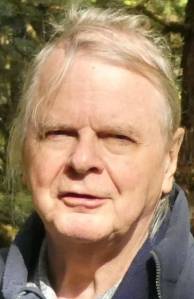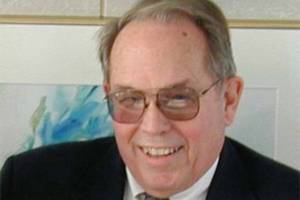Putting principles into policy
Published 7:25 pm Saturday, October 15, 2016
The Kenai Peninsula Borough
Assembly this week passed a resolution that puts into policy guidelines for how members of the public may be selected to give invocations before assembly meetings.
At first blush, the policy appears to be flirting with government approval of religion. However, upon closer reading, the process established in the policy upholds the stated intention to “acknowledge and express the assembly’s respect for the diversity of religious denominations and faiths represented and practiced among the residents of the borough.”
For borough residents who would like to see the invocation removed from the agenda altogether, this measure obviously falls short.
However, there are some important points included in the policy to address those concerns — most significantly, a directive that “No member or employee of the assembly will direct the public to stand, bow, or in any way participate in the prayers.” It also stipulates that the assembly agenda include a disclaimer that “Any invocation that may be offered at the beginning of the assembly meeting shall be a voluntary offering of a private person to and for the benefit of the assembly. No member of the community is required to attend or participate in the invocation.”
As for concerns to the guidelines for who can give an invocation — a member of a religious association with an “established presence in the Kenai Peninsula Borough” — we think the intent of the policy is to interpret that in the broadest sense possible. If a borough resident regularly follows the tenets of a particular religious association, wouldn’t that religion then have an established presence — regardless of whether those tenets are practiced in a traditional church?
Likewise, the use of Internal Revenue Service 501(c)(3) eligibility criteria to determine the authenticity of a religious association should a question arise is also very broad. The IRS, for constitutional reasons, has a deliberately vague definition of religion; the assembly policy is meant to prevent what are referred to as action organizations — such as political action committees — from giving an invocation. In other words, the message is intended to be spiritual, not political.
According to the policy, those who disagree with decisions on who is deemed eligible are able to bring their complaint in front of the assembly for a public hearing.
Perhaps the most important point, the policy prevents the assembly from putting any limitations on the content of an invocation, other than a request “that no invocation shall proselytize or advance any faith, or disparage the religious faith or non-religious views of others.”
Members of the assembly and clerk’s office staff also are prevented from engaging in prior review of the content of an invocation.
That part of the policy effectively prevents assembly members from insisting that an invocation be given — or not given — by members of a certain faith.
The U.S. Supreme Court has ruled the practice of an opening prayer for legislative bodies to be constitutional. In one of the cases cited in the assembly’s resolution, Town of Greece v. Galloway, the court found that “legislative prayer lends gravity to the public business, reminds lawmakers to transcend petty differences in pursuit of a higher purpose, and express a common aspiration to a just and peaceful society.”
We agree with that sentiment. We think the measure enacted by the assembly does a good job of putting those principles into policy, and we hope the assembly will do its part to ensure the policy is applied according to its stated intention, “in a way that is all-inclusive of every diverse religious association serving residents of the Kenai Peninsula Borough.”




